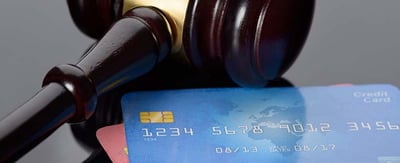
Who Initiates a Second Chargeback in Pre-arbitration?
By Chris Alarie on Mar 26, 2021
The process by which a chargeback can progress is always complicated and often confusing. The details of the transaction, the decisions made by the issuing and acquiring banks, and especially the policies of the card brand can all dramatically alter the pathways that a disputed payment follows.
This twisted mass of possibilities and complications gives rise to particular objects of confusion. One of which is the “second chargeback”, a perhaps poorly-named, borderline apocryphal element of the dispute process that naturally leads to a number of questions. This article will answer those questions in order to clear up any confusion about second chargebacks and situate them within the larger chargeback dispute process.
What Is a Second Chargeback?
A second chargeback is something that may occur during the pre-arbitration process. There are certain conditions that may prompt a second chargeback, such as new information from the cardholder, a change in reason code, or incomplete or uncompelling documentation from the merchant.
Who Initiates a Second Chargeback?
The issuing bank initiates the second chargeback, if at least one of the aforementioned conditions seems to necessitate one.
Does Every Card Brand Allow Second Chargebacks?
No. Visa’s chargeback dispute process does not allow for any second chargebacks. Mastercard, American Express, and Discover all allow for the possibility of second chargebacks.
For more information about Visa’s pre-arbitration workflows, click here. For more information about Mastercard’s pre-arbitration workflow, click here.
What Are the Possible Outcomes of Second Chargebacks?
The merchant has two options in response to a second chargeback. They could accept the chargeback, effectively dropping their chargeback dispute and agreeing to pay the chargeback and related fees. Or the merchant could opt to contest this chargeback, continuing the chargeback dispute.
If the merchant chooses to dispute the second chargeback, they must again provide compelling evidence to the acquirer. This information will likely need to be different than the evidence provided in the previous stage of the dispute and should directly address the new issues raised by the second chargeback as well as any remaining issues from the original chargeback.
Upon receiving this merchant evidence from the acquirer, the issuing bike can choose to accept it and cease pursuing the chargeback. In this circumstance, the payment would be returned to the merchant. Or the issuer could opt to continue pursuing the chargeback, continuing the dispute process until it ends in arbitration.
Do Second Chargebacks Count in Determining Chargeback Ratio?
No. A second chargeback on a single transaction will not count against the merchant when determining chargeback ratio.
How Do I Prevent Second Chargebacks?
Since second chargebacks are initiated by the issuer, merchants can’t directly prevent them. Merchants can make themselves better protected against second chargebacks stemming from incomplete or inadequate supporting evidence by developing and maintaining a solid chargeback management program. However, second chargebacks that are derived from new information or changing accusations from the cardholder are beyond the merchant’s control.
The best method for preventing second chargebacks is reducing your business’s susceptibility to chargebacks entirely. There are a number of methods for doing so, such as focusing on customer service, practicing affiliate monitoring, and using any of the wide variety of technological solutions available to merchants. But any solid chargeback prevention strategy begins with an understanding of the sources of chargebacks. Midmetrics provides you with a suite of chargeback management tools and in-depth analytics that allow you to understand exactly where your chargebacks come from and what you need to do to reduce them.


